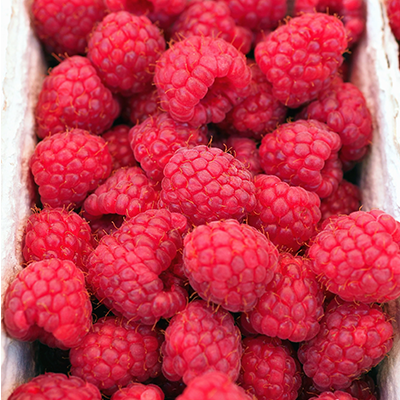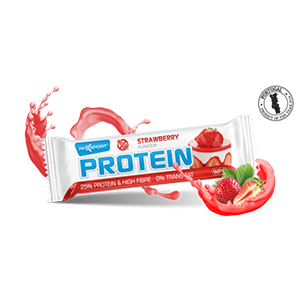Ένα φλιτζάνι raspberries (σμέουρα) περιέχει 8 γραμμάρια φυτικές ίνες, 1/3 της συνιστώμενης ημερήσια πρόσληψης.
Πως σερβίρονται: Βάλτε τα στο blender και ανακατέψτε τα με ένα ποτήρι φρέσκο χυμό φρούτων ή συνοδεύεστε τα με γιαούρτι χαμηλών λιπαρών.
https://www.balancediet.gr/%CE%BF%CE%B9-%CE%B5%CF%85%CE%B5%CF%81%CE%B3%CE%B5%CF%84%CE%B9%CE%BA%CE%AD%CF%82-%CE%B9%CE%B4%CE%B9%CF%8C%CF%84%CE%B7%CF%84%CE%B5%CF%82-%CF%84%CF%89%CE%BD-berries-%CE%BC%CE%BF%CF%8D%CF%81%CE%B1/
Raspberries are a berry fruit related to the blackberry and rose. They are grown in the UK over the summer months. Raspberries are actually little bunches of reddish-pink druplets, tightly packed together, that have a sharp, sweet taste.
Nutritional profile of raspberries
Raspberries contain 25 calories per 100g, 1g protein, negligible fat and 5g carbohydrates, all of which is natural fruit sugars. Despite their size, they contain a wide variety of vitamins and minerals including calcium which we need for healthy bones and heart and 50 per cent of our daily vitamin C intake in just one 100g serving, which is important for protecting our cells and skin.
Raspberries also have a variety of B vitamins which the body needs for energy, as well as phosphorus and magnesium which are both minerals that help to support strong bones and teeth.
They may be small, but raspberries have the potential to support health in a number of ways thanks to their phytochemicals. A 2017 study found that mice with metabolic syndrome (a medical term for a combination of diabetes, high blood pressure and obesity) who were fed a single serving of raspberries a day saw improvements in their weight, insulin sensitivity and oxidative stress. More human studies are required in order to confirm that the same results will apply to humans, however.
https://www.bbcgoodfood.com/howto/guide/health-benefits-raspberries





